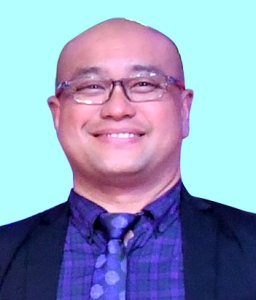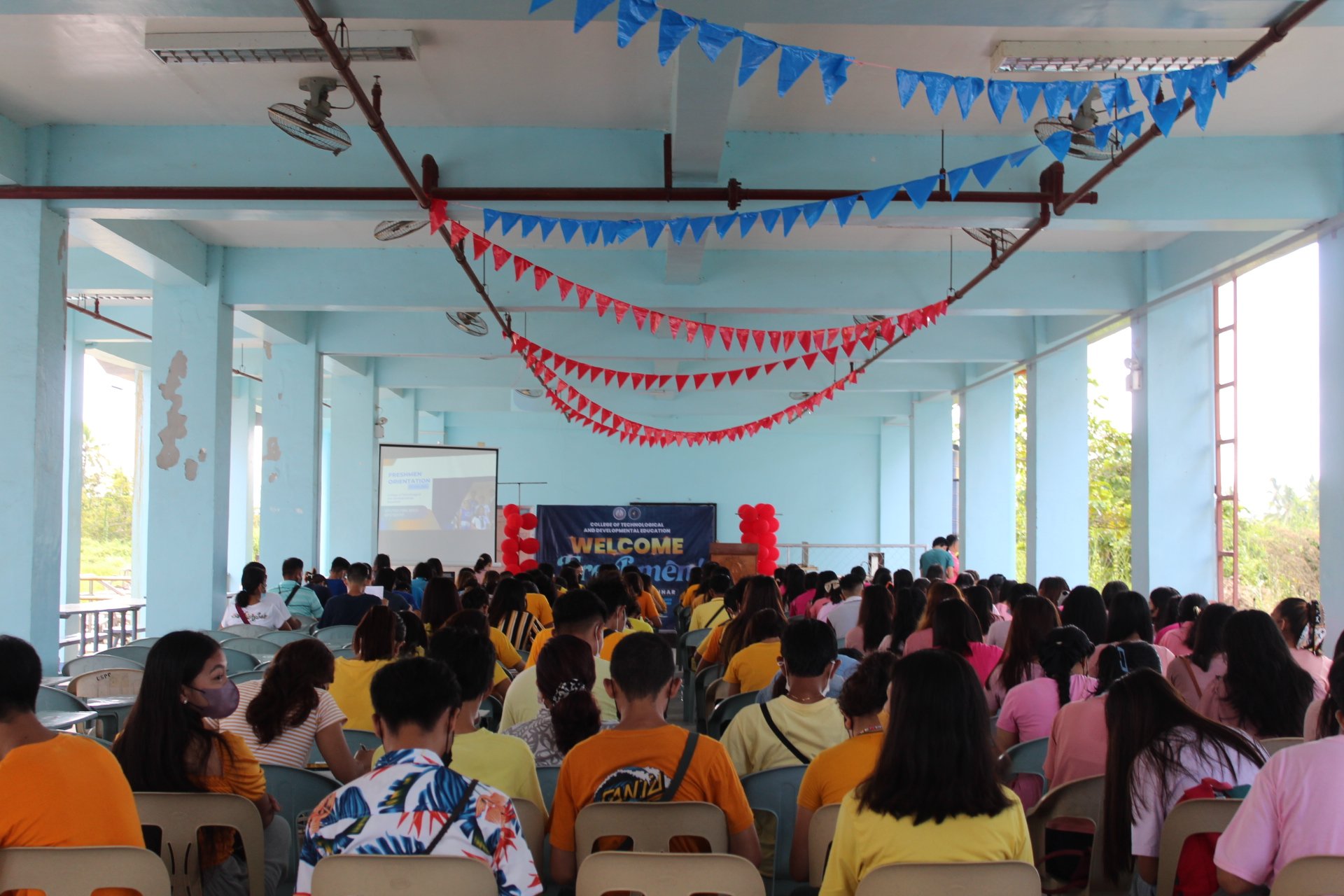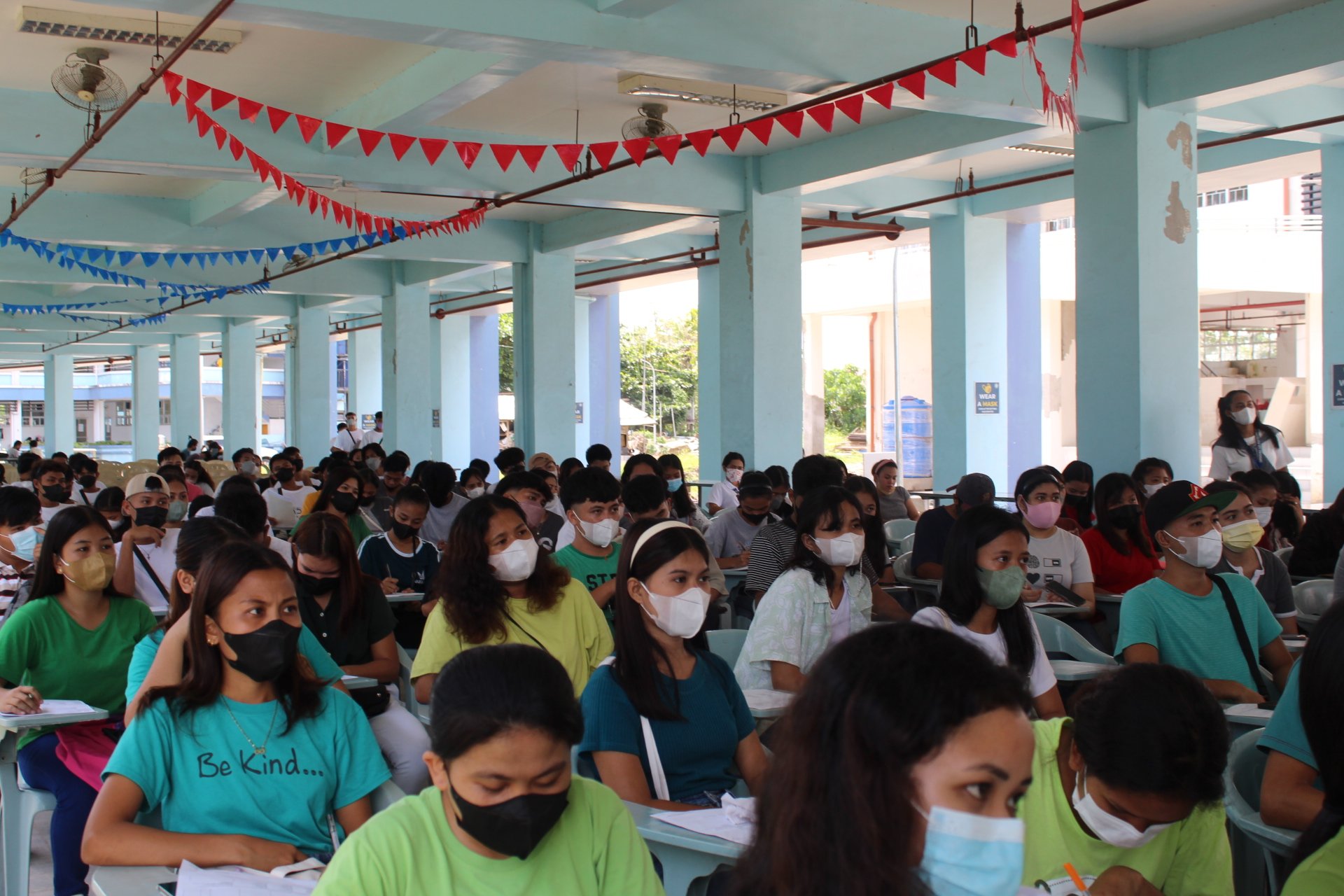
DR. PATRICK GERARD A. PAULINO
Dean, College of Technological and Developmental Education
ctde@cspc.edu.ph
(054) 288-4421 to 23
@cspc.ctde
The College of Technological and Developmental Education aimed to prepare and produce the region’s human resource in technical, vocational, and teacher education who are professionals adhering to the professional, moral and ethical standards equipped with the university core values, competencies, skills, and knowledge to meet the needs and challenges of the society.
Specifically, it aims to achieve the following:

Be one of us!
Be a CSPCean Educator!
Major in:
BTVTEd is a program that provides and equips learners the knowledge and skills to become competent and motivated teachers that can teach in technical-vocational courses in their field of specialization.
FUTURE OPPORTUNITIES:
PROGRAM EDUCATIONAL OBJECTIVES:
PROGRAM OUTCOMES:
This program prepares teachers who will instruct and manage students with additional needs in inclusive and segregated education settings. Students of this program will be taught the appropriate tools, methodologies, interventions, modifications, and individualized plans for children with special needs. It will also teach students to evaluate the progress of children within the generic range of disability categories.
FUTURE OPPORTUNITIES:
PROGRAM EDUCATIONAL OBJECTIVES:
PROGRAM OUTCOMES
The graduates have the ability to demonstrate knowledge, skills and dispositions under the following domains:
Bachelor of Physical Education (BPED) is a program aimed at physical literacy, which serves as the foundation of confidence, enjoyable, and sustained participation in a wide range of physical activities. As a teaching profession, PE is a seamless activity of designing and delivering activities, providing quality instruction, managing the classroom, and assessing student learning, modeling as well as mentoring range of disability categories.
FUTURE OPPORTUNITIES:
PROGRAM EDUCATIONAL OBJECTIVES
PROGRAM OUTCOMES
PO1-Disciplinal Knowledge: Apply scientific and evidence-based practices critical to the educational and learning processes.
PO2-Movement and Competency and Proficiency:
PO3-Curriculum and Program Planning, Implementation, Monitoring and Evaluation:
PO4-Professional Accountability and Responsibility:
PO5-Communication:
Culture and Arts Education is a field of specialization engaged in clarifying the conceptual foundations of value-laden creative expressions such as visual arts, music, drama, and dance; in defining its relations to other disciplines of thought and action that address the fundamental question of what it means to creatively express the condition of being human in changing life-worlds; in analyzing the conditions and possibilities for crafting and asserting creative expressions of bf being human in diverse contexts; and in developing programs responsive to local and global contexts of production, circulation, and consumption of creative expressions.
FUTURE OPPORTUNITIES:
PROGRAM EDUCATIONAL OBJECTIVES
As a four-year degree program, the Bachelor of Culture and Arts Education aims to provide graduates with ability to:
PROGRAM OUTCOMES
Program Educational Objectives and Program Outcomes

Student Organizations